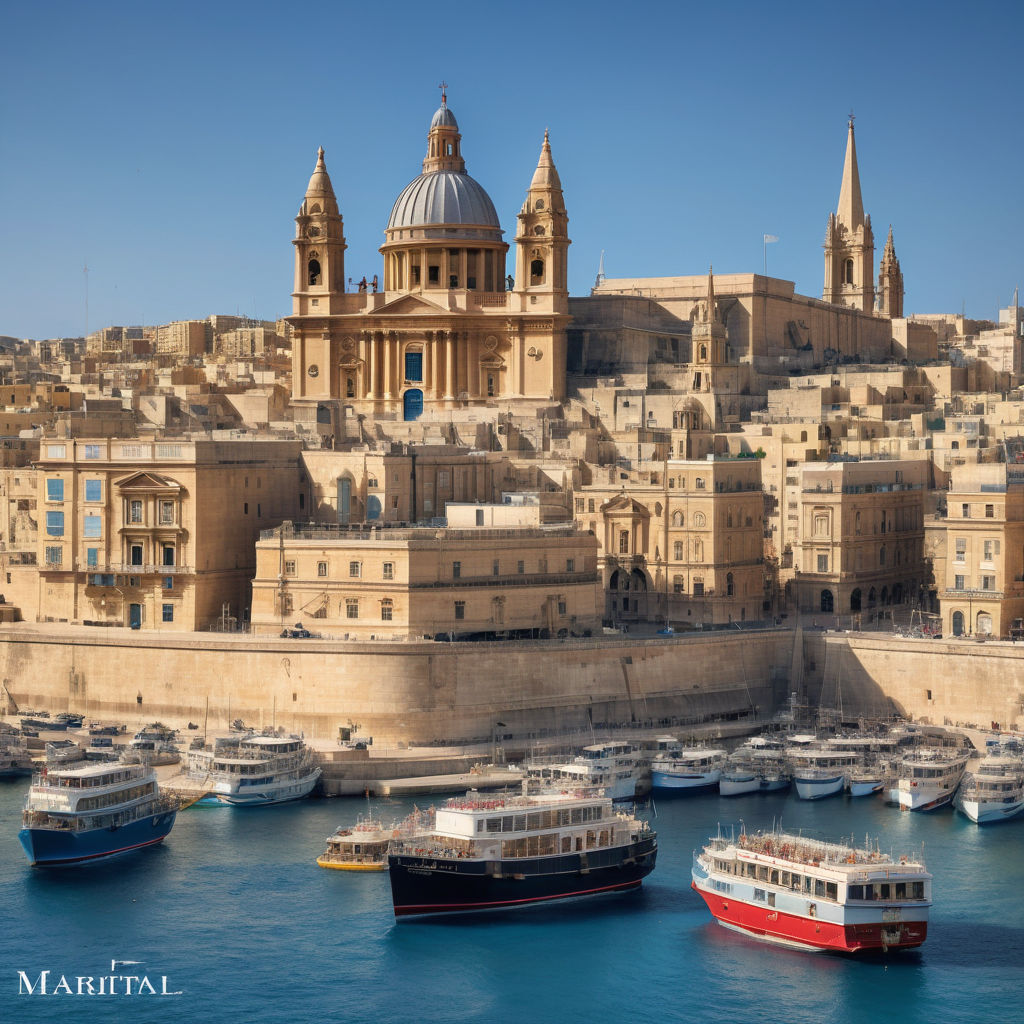Introduction to Malta: The Mediterranean Jewel
Discover Malta: A Blend of History and Culture in the Heart of the Mediterranean

Introduction to Malta
Malta, an archipelago in the central Mediterranean Sea, lies south of Sicily and north of Libya. This small but historically significant country comprises three main islands: Malta, Gozo, and Comino, with the island of Malta being the largest and most populous. The capital city, Valletta, is a UNESCO World Heritage site, known for its well-preserved architecture, vibrant culture, and strategic importance throughout history. Malta's rich cultural heritage is a blend of influences from various civilizations, including the Phoenicians, Romans, Arabs, Normans, and the Knights of St. John, reflecting its position at the crossroads of Europe and Africa. Malta's cultural heritage is celebrated through various festivals, music, art, and cuisine. The island nation hosts numerous annual events, such as the Malta International Arts Festival, the Valletta Baroque Festival, and the Feast of St. Paul’s Shipwreck, showcasing its diverse artistic and cultural traditions. Maltese cuisine, known for dishes like rabbit stew, pastizzi, and lampuki pie, reflects the island's agricultural roots and Mediterranean influences.
Cross-national and Cross-cultural Understanding
Maltese people generally exhibit a welcoming and open attitude towards other cultures, fostered by the country's historical interactions with various civilizations and its modern role as a tourist destination and hub for international business. The Maltese value cross-cultural understanding and are accustomed to engaging with people from diverse backgrounds. Cultural exchanges are a significant aspect of life in Malta. The country hosts numerous festivals and events that celebrate both local and international traditions. The Malta International Fireworks Festival, for example, attracts participants and spectators from around the world, promoting cross-cultural dialogue through the universal language of celebration. Additionally, Malta's strategic location in the Mediterranean has historically made it a meeting point for different cultures, further fostering an environment of openness and mutual respect. Educational programs in Malta emphasize global awareness and cross-cultural understanding. Schools and universities incorporate multicultural perspectives into their curricula, encouraging students to appreciate and respect diversity. The University of Malta collaborates with international institutions to facilitate student and faculty exchanges, enriching the educational experience and fostering global connections.
Interactions and Social Dynamics
Typical interactions between Maltese people and foreigners are characterized by warmth, respect, and a strong sense of community. Social behaviors in Malta reflect a blend of traditional customs and contemporary influences, emphasizing respect for others, hospitality, and communal living. Communication styles in Malta are generally informal and friendly. Maltese and English are the official languages, with Italian also widely understood. This multilingualism facilitates interactions with tourists and expatriates, making it easier for them to integrate into the local community. Cultural norms in Malta place a strong emphasis on respect for elders, community involvement, and a relaxed approach to time. These norms create a welcoming and inclusive atmosphere for foreigners, who often find it easy to adapt to the local way of life. Public displays of affection are generally accepted, reflecting the country’s relaxed social attitudes.
Views on Dating and Relationships
Attitudes towards dating and relationships with foreigners in Malta are generally positive. Maltese people are open to forming relationships with individuals from different cultural backgrounds, recognizing the enrichment that such diversity brings to their lives. However, cultural expectations and traditions do play a role in shaping these views. Family involvement is significant in relationships in Malta, with elders often playing a crucial role in the approval process. Traditional customs emphasize respect, patience, and the gradual building of trust in relationships. While modern dating practices influenced by global trends are becoming more common among younger generations, traditional values still hold sway in many communities.
Marriage and Family
Marrying a foreigner in Malta involves navigating both legal and social considerations. Legally, the country has clear regulations governing marriage, including residency requirements and the need for proper documentation. Socially, cross-cultural marriages are generally accepted, though couples may face challenges related to cultural differences and integration. Familial acceptance is a key factor in cross-cultural marriages. Maltese families can be protective, and gaining their approval is often essential for the relationship's success. However, the diverse cultural landscape of Malta means that many families are already familiar with and accepting of different cultural backgrounds, which can facilitate smoother integration for foreign spouses. Trends in cross-cultural marriages reflect Malta's open and inclusive society. Many Maltese who travel abroad for education or work form relationships with individuals from various cultures, bringing back diverse customs and traditions that enrich the local community.